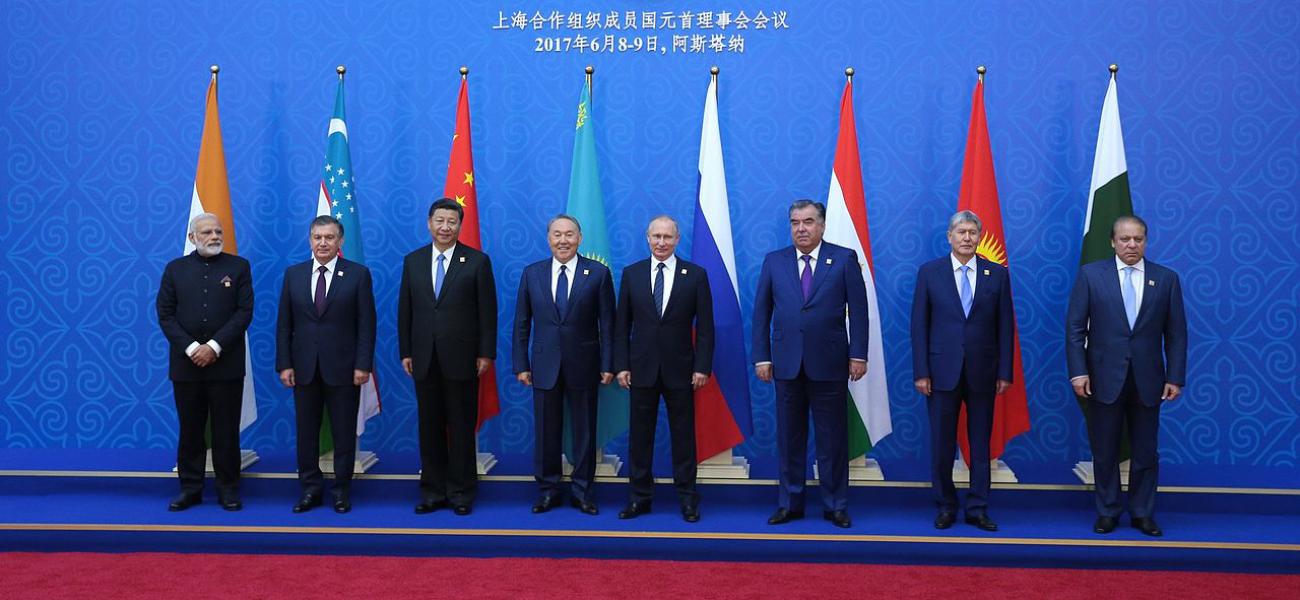
Bigger, Not Better: Russia Makes the SCO a Useless Club
This is a summary of an article originally published by Carnegie Moscow Center.
The author writes that the expansion of the Shanghai Cooperation Organization (SCO) may make it a "less viable organization.” The addition of India and Pakistan, a change Russia is pleased with, gives the organization claim to 45% of the world’s population; however, other organizations, such as the Asia-Europe Meeting (AEM), represent more people, global GDP and land. The SCO was China’s first attempt at "an institutional ‘condominium’” and due to Russia’s historical dominance in the region, Beijing needed Moscow to participate. The SCO has helped to coordinate Russian and Chinese security interests in Central Asia; however, China’s economic goals, including an SCO free trade zone and a developmental bank, have not come to fruition. Moscow torpedoed these initiatives due to the vast difference between Russia's and China's economic potential. Although China initially opposed Russia’s push to have India join the SCO, it began to change its position in 2013. “Beijing realized that Moscow would not accept the creation of an SCO development bank and free trade zone on terms China found reasonable,” but it also realized it did not need the bank to promote its economic interests in the region. 2013 also saw the beginnings of the project that would become the One Belt, One Road initiative. China began experimenting with creating universal financial institutions. Due to its fears over China’s rise, Moscow has turned the SCO from “a multilateral organization established to develop rules of the game for Eurasia into a useless bureaucracy.” The author notes that assisting in the creation of a Eurasian bank instead of trying to stop it would have better served Russian interests, and advises Russia to learn from its mistakes.
Read the full article on the Carnegie Moscow Center's website.
Alexander Gabuev
Alexander Gabuev is a senior Carnegie Moscow Center associate.

